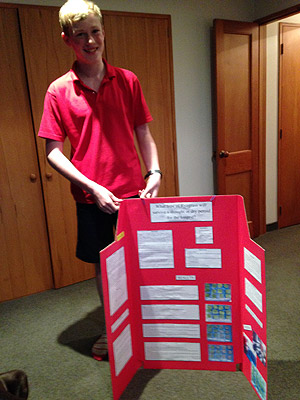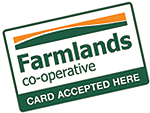 |
|
|
|
Issue 68 / Spring / November 2015
Hi [firstname]
 Welcome to the November edition of Specialty Seed's SeedData Newsletter.
Welcome to the November edition of Specialty Seed's SeedData Newsletter.
Spring has certainly hit with a bang! October was an exceptionally busy month for us. I’m not sure we have had a busier one.
This was possibly caused by going from a wet to dry period quickly, with most of our farmers wanting to sow earlier than normal.
We also had very strong demand for fodder beet seed and chemicals earlier than normal. The good news is that most of our clients have sown both their pasture and fodder beet seed nice and early and are currently busy applying weed control chemicals to both.
Should you have any questions on weed control in either fodder beet or new pasture please feel free to contact us.
In this month’s SeedData newsletter I take my hat off to a budding new agricultural scientist, we take a look at fodder beet sowing dates and I give you a heads up on the new changes around the corner from Worksafe NZ.
Please browse these topics below:

Potential new plant scientist

Quite often we get asked to supply a small amount of seeds for different school projects and of course we are happy to do so.
Late last year we had one such request from one of our client's sons, Josh Jukes from Balcultha.
Having recently moved from Cromwell to Balcultha, Josh wondered what types of plants last the longest when the water runs out.
We sent Josh small amounts of annual, italian, hybrid and perennial ryegrasses.
While the results were predictable, the level of skill Josh put into this trial, pretty much unaided, not only meant he won at his class award but he also won a special award from the University of Otago, Department of Botany.
Josh also took time out to explain the trial to me on a recent visit and I was really impressed with how Josh conducted, displayed and articulated the trial.
Hopefully we have a budding new scientist in the making!
Contact Link: Contact Specialty Seeds if you have any questions.
Back to top
 Sowing dates for fodder beet
Sowing dates for fodder beet
One of the most commonly asked questions I get around fodder beet is; what is the best sowing date for my region?
To date its been a very difficult question to answer, as there has been little (if any) research done on the subject. Often the answer has been, shortly after the seed has arrived in the country.
However work has started on the subject and in 2014, DLF Seeds conducted trials at three different sites in Canterbury.
These sites where at 10, 244 and 370 metres above sea level. The earliest sowing date was on the 29th of August (soil temperature was at 6.2°C) and the last sowing date was the 17th of November.
Some of the conclusions from this one off trial have found that the earliest sowing date, the 29th of August and the 2nd of September had a higher yield than all other dates.
The last sowing date, the 17th of November had the lowest yield and the sowing date had no influence on the incidence of bolters.
It is good to see this work being conducted and we look forward to more research in different regions throughout New Zealand in the near future.
I am also mindful that the results may put extra pressure on seed supply companies to ensure seed is supplied earlier than has been the case ... but that is another story!
Downloads link: Click here to see Specialty Seeds Fodder beet downloads
Website link See more information on Fodder beet on our website.
Contact Link: Please dont hesitate to contact Specialty Seeds with any fodder beet questions.
Back to top
 Worksafe (OSH) changes loom closer
Worksafe (OSH) changes loom closer

I recently attended the annual New Zealand Grain and Seed Trade Association conference in Auckland.
It was, as always, interesting to catch up to our peers and also catch up to the latest information within in the industry.
One of the most interesting sessions we had was about the new changes to Worksafe regulations.
While the Worksafe representative pointed out that the coming changes are relatively minor, I believe they are hugely significant.
I think the days where a company representative, or any other person or company coming into your business unannounced may be rapidly coming to an end.
The onus of responsibility has also changed significantly. Both you and your staff will need to understand that they are not only responsible for themselves but for anyone coming into your business.
Another big difference that is that soon there will be no such thing as an 'accident' at a work place. If one occurs someone is going to be held accountable.
The person that the accident has happened to will most likely be the least accountable.
When I got back from the conference I started looking into the changes we will need to look at in our business.
While these changes will mean more paper work, there are plenty of companies around, who for what I think, is a small fee can support and guide you through this process.
Here at Specialty Seed's, we gone down that route and have employed a company to work with us to help get our policy and training in place.
There is no doubt that it will lead to more compliance costs.
Farming is one of the industries where the microscope will fall on closely. In 2014, there were 20 people killed our the industry, which hopefully you will agree with me is unacceptable.
No employer wants one of their staff members getting seriously hurt or worse.
Note: These changes take effect on or about April 4th, 2016.
Contact Link: Contact Specialty Seeds if you have any questions around these changes.
Website Link: Check out the Worksafe website to see how Worksafe are thinking in the Agricultural industry.
Back to top

 As always, we hope this issue has been of some value to you. If you have a comment on this newsletter or anything on our website, please give us a call on our Freephone: 0800 727 8873, send us an email at: mail@specseed.co.nz.
Kind Regards

Stephen Finch & David Percival
Specialty Seeds - New Zealand
|
|
|
|
 |
|
|

|
If you are having trouble viewing this email, .
If you would like to be removed from this newsletter please click here to
|
